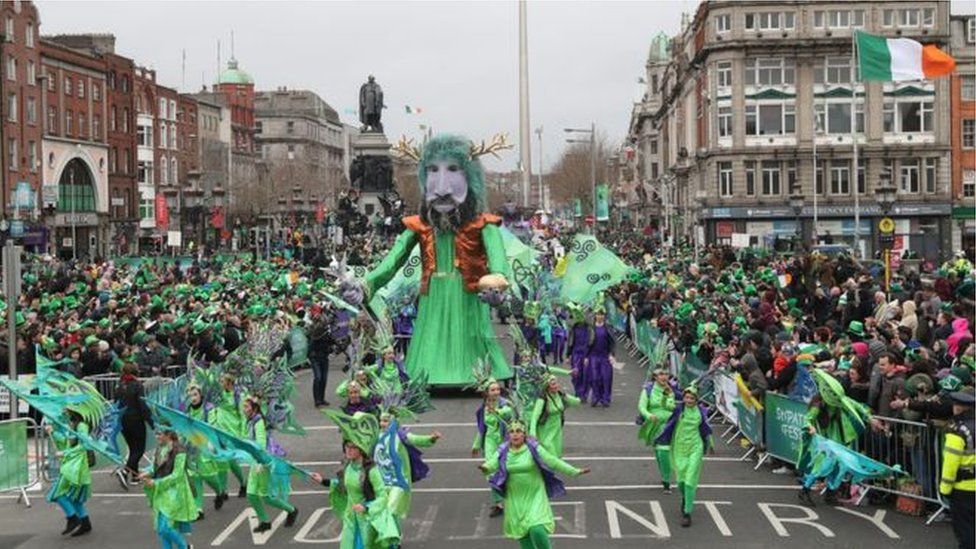How Studying Ireland Influences Intercultural Communication
Why I Chose to Study Ireland
I chose to study Ireland because I want to explore how learning about another culture will improve my “intercultural communication” skills (Samovar, 2017, p.19). Milton J. Bennett, author of “Intercultural Communication,” defines this idea as “the study and practice of communication across cultural contexts” (Bennett, 2013). “Intercultural communication” encompasses a person’s attempts to assign “meaning” to “cross-cultural” “communication” (Bennett, 2013; Samovar, 2017, p.13). For example, when I communicate with someone from Ireland, I may judge their culture based on pre-determined behaviors or assumptions, such as an Irish “accent” (Maguire, 2020). These predetermined judgements cause inaccurate “generalizations” about Irish culture, which damages “cross-cultural” “communication” skills (Bennett, 2013; Samovar, 2017, p.19). I can avoid these common pitfalls by understanding how culture influences “communication” styles (Samovar, 2017, p.17). I will develop effective “intercultural communication” skills by improving my knowledge of Irish culture and understanding the problems and solutions associated with “intercultural communication” (Samovar, 2017, p.17). I can use my knowledge of Ireland's culture to understand how my Irish heritage impacts cross-cultural communication.
 |
| Irish St. Patrick's Day Parade in America |
How Generalizations and Ethnocentrism Impact Intercultural Communication
Although America and Ireland enjoy similar traditions, Americans mischaracterize Irish customs because they may view from an “ethnocentric” viewpoint, which leads to inaccurate “generalizations” (Samovar 2017, pp.19-20). Larry Samovar, author of Communication Between Cultures, argues that “the habit of overemphasizing one’s own culture as a template for assessing other cultures is called ethnocentrism” (Samovar 2017, p.20). This concept encourages analyzing another culture’s customs from “one’s own” perspective (Samovar 2017, p.20). For example, I assumed that all Irish were “Roman Catholic” because 78.3% identify as “Catholic” (“Ireland,” 2022). This “generalization” is inaccurate because 21.7% identify with other religions, such as “Muslim” (“Ireland,” 2022; Samovar 2017, p.19). These assumptions diminish the impact of other factors, such as “history,” other cultures and “family life” that influence Irish customs (Samovar 2017, pp.18-19). For example, while St. Patrick’s Day is an Irish holiday, Ireland embraces its U.S. roots by adopting American celebrations, such as a “St Patrick’s Day Festival” (Klien, 2019). This idea demonstrates that we should acknowledge the complexity of other cultures and avoid using “generalizations” mischaracterize diversity (Samovar, 2017, p.19).
 |
| St. Patrick's Day Parade in Ireland |
How to Overcome Intercultural Communication Problems
When I examine Ireland’s culture, I will eliminate personal assumptions to understand their “cultural” aspects from an “objective” perspective (Samovar, 2017, p.20). Samovar defines “objectivity” as “not influenced by personal feelings, interpretations or prejudice” (Samovar, 2017, p.20). This idea requires me to avoid integrating my biases and assumptions when I research or communicate with someone from another culture (Samovar, 2017, p.20). For example, when I meet someone from Ireland, I judge their behaviors based on pre-determined assumptions (Samovar 2017, pp.18-19). However, I can avoid these “generalizations” by maintaining “an open mind” when I communicate with an Irish citizen (Samovar 2017, p.21). I will accomplish this by relying on reputable sources of information, such as the CIA Factbook, that present “objective” viewpoints (“Ireland,” 2022; Samovar 2017, p.21). I will use sources that present Irish customs from their own viewpoints (Samovar 2017, p.21). I will employ statements, such as “more likely,” that “moderate[s]” these assumptions (Samovar 2017, p.20). These solutions limit my assumptions about Ireland, which enables me to understand the complexity of their culture (Samovar 2017, p.21).
"Irish meals you won’t easily find in America"
 |
| "Black and White" Pudding" |
Comments
Post a Comment